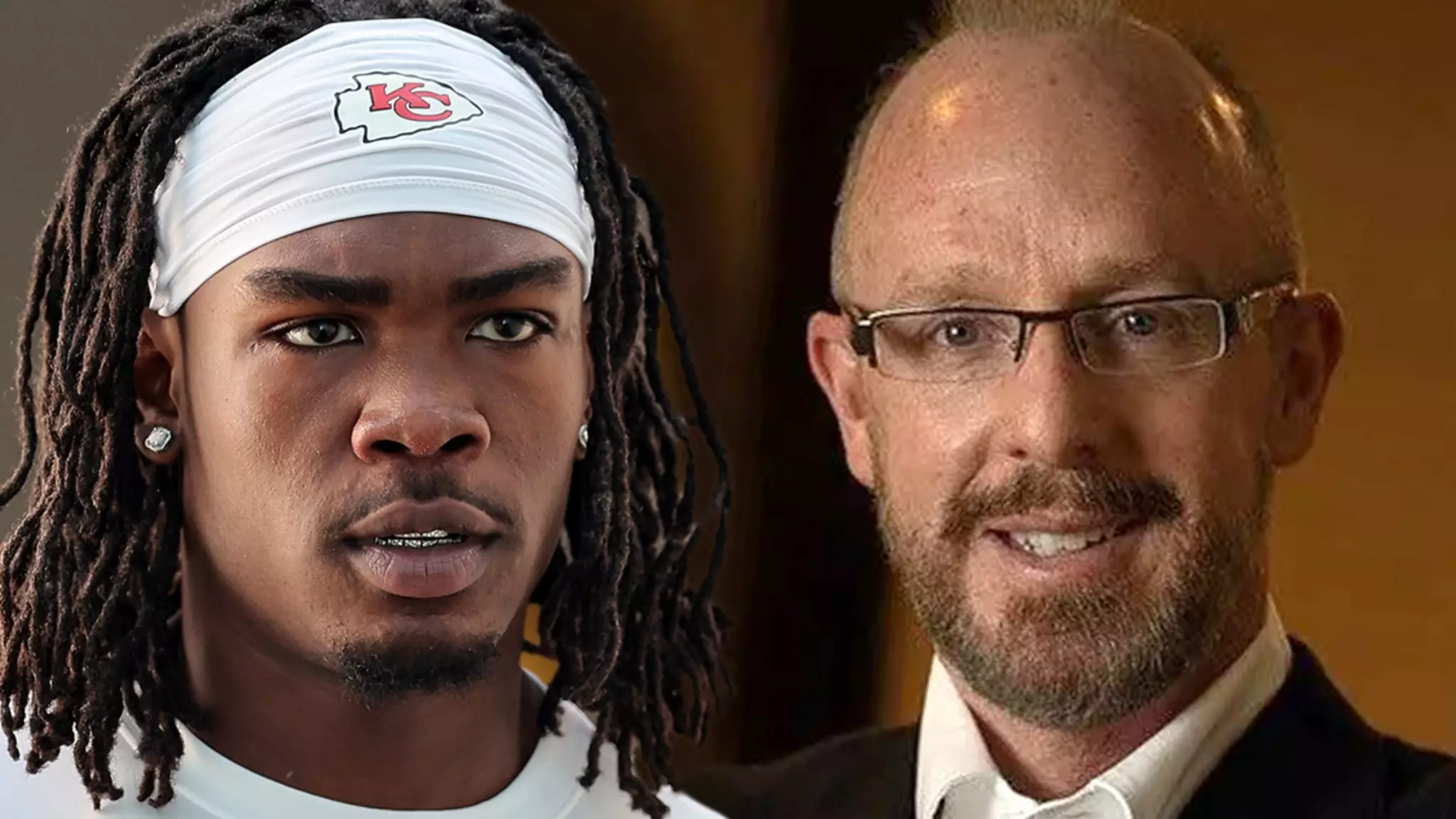In the NFL’s high-stakes universe, where athletic prowess often takes center stage, the off-field controversies of players can cast long shadows over their careers. Rashee Rice, a promising receiver for the Kansas City Chiefs, finds himself embroiled in a scandal that questions the very integrity of professional sports. While he is set to participate in the initial games of the upcoming season, the unresolved legal issues surrounding a severe car crash threaten to undermine his burgeoning reputation. This scenario exemplifies the difficult balance between player rehabilitation, league protocol, and public perception—a tightrope walk where judgment must be careful and deliberate.
The incident in question is not merely a petty misstep but a grave matter involving serious injuries to an individual named Kathryn Kuykendall. According to her legal representation, Rice’s asserted readiness to play makes little sense given the ongoing civil proceedings and the substantial settlement negotiations. The situation calls into question the fairness of allowing an athlete accused of reckless endangerment back into the field of play when accountability appears shrouded in doubt. It’s a reminder that athletic talent should never overshadow the moral responsibility athletes bear, especially when their actions have potentially life-altering consequences.
Legal and Ethical Quandaries
The narrative about Rashee Rice is layered with legal intricacies and ethical dilemmas. His alleged reckless behavior—speeding over 100 MPH, racing his Lamborghini, and fleeing the scene—paints a picture of arrogance or recklessness that should alarm any sports fan or league official. The fact that Rice has pled guilty to felonies related to this incident ought to be a wake-up call for the NFL and the public alike. Yet, the league’s indecision in suspending or disciplining him reflects a troubling attitude—perhaps a hesitance rooted in the desire to not jeopardize team success or a misconception that players’ off-field issues are secondary to their athletic contribution.
Furthermore, the legal expert’s critique highlights a broader systemic failure: the NFL’s seeming indifference towards the victims of incidents involving its players. The insinuation that the league is prioritizing image over justice raises serious ethical questions. Are athletes given a leniency that ordinary citizens would not enjoy? Does the league risk normalizing dangerous behaviors simply because of the players’ value on the field? Such considerations press the league to reevaluate its protocols—not just for public relations, but for genuine accountability and moral responsibility.
Asymmetry of Justice and the Power Dynamics
One cannot ignore the striking disparity between the treatment of Rashee Rice and the victim, Kathryn Kuykendall. Her lawyer’s pointed remarks criticize the NFL’s apparent favoritism, implying that leagues may be more concerned with safeguarding their investments than ensuring justice for victims. The critical comment about Rice’s ability to “play but not pay” underscores a profound imbalance—players are often shielded economically and socially, while victims are left to grapple with their trauma with limited support or acknowledgment.
This asymmetry illuminates the deeper issues of power dynamics inherent in professional sports. Athletes with resources, high-profile agents, and league influence often transcend the ordinary legal consequences faced by everyday citizens. When combined with the league’s reputation considerations, the result can be a system that unwittingly fosters a culture of impunity. Such a scenario undermines public trust and challenges the integrity of the sport—
especially when young fans and aspiring athletes look up to sports figures as role models.
The Cultural Implications and Future Outlook
The upcoming NFL season, laden with high-profile matchups including international games like their opener in Brazil, adds an additional layer of controversy. The league’s decision to delay disciplinary actions—waiting until at least September 30—appears both strategic and troubling. It suggests that the league values marketability and global reach more than the message sent to players and fans about responsibility.
Ultimately, Rashee Rice’s situation encapsulates a broader cultural conversation: how sports leagues navigate the complexities of justice, morality, and public perception. The choices they make now will influence the league’s reputation and its commitment to fostering a just, responsible environment. Players like Rice symbolize a larger debate—can they truly reconcile their raw talent with the moral stakes that come with their platform? The answer isn’t straightforward, but what is clear is that ignoring such issues only risks embedding deeper problems within the fabric of professional sports.
Considering this, the NFL must confront not just this individual case but its overarching approach to player misconduct and victim advocacy. True leadership lies in holding athletes accountable while protecting the integrity of the game—an endeavor that requires more courage and transparency than the league has so far demonstrated. The spotlight remains, and rightfully so: the choices made today will resonate long after the final whistle.

